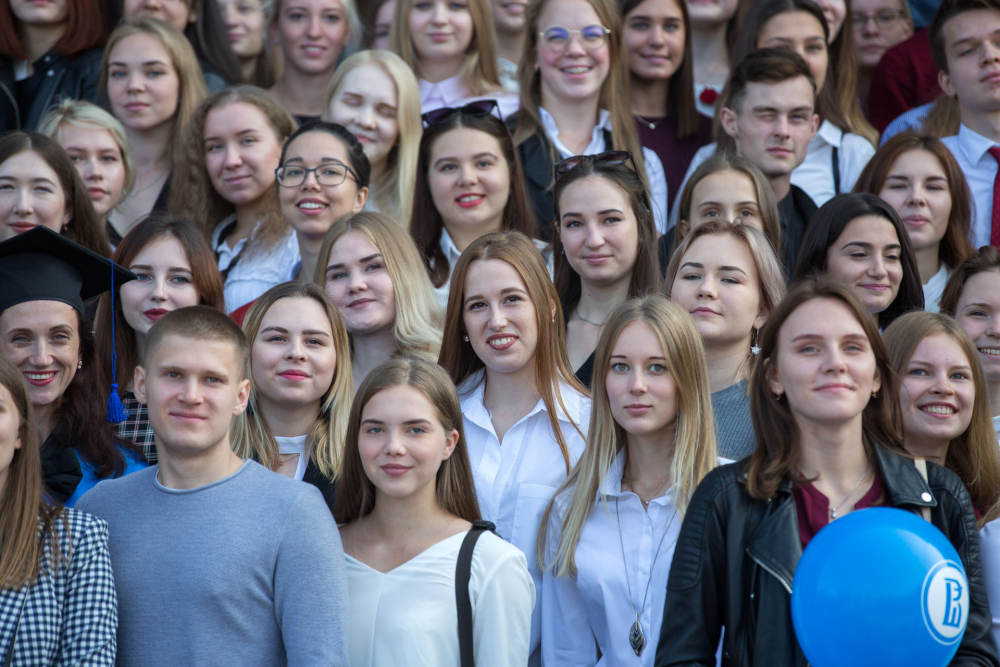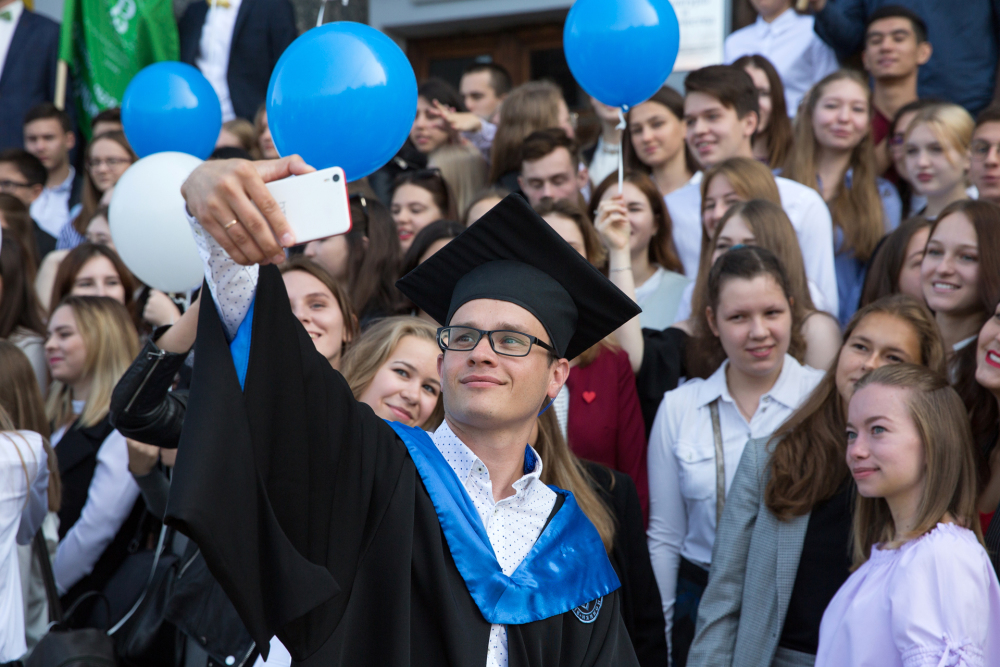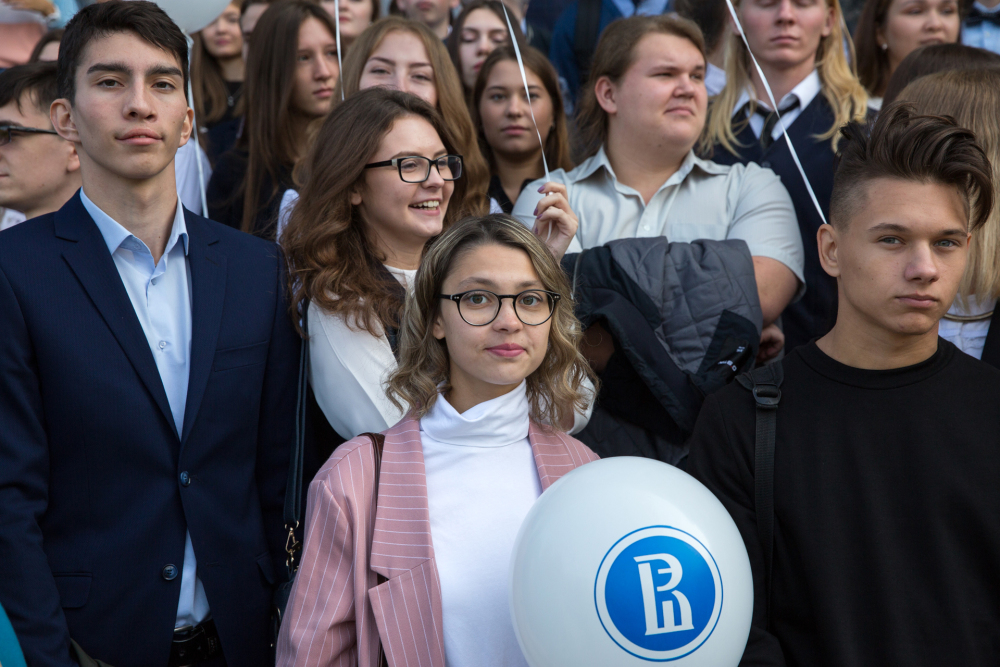HSE University in Perm: ‘We Help Talents Develop in the Region’

Galina E. Volodina has been the Campus Director in Perm since 1997. Under her leadership, the Perm campus has turned into the major player in shaping the region’s future—be it general education, retaining of talents, or R&D. In her interview for the HSE Look, Galina Volodina shares how HSE Perm’s development agenda has been altered and what are its current priorities.
Galina E. Volodina
— What sets HSE Perm apart from other campuses today?
— Besides the fact that we are the furthest from the centre of Russia, and this fact has impacted our formation and development here, we are the most compact campus, not only in terms of the placement of buildings (we have seven of them and they all are within walking distance from one another), but also because we have the smallest student body (on average we accept 600 students a year, both to Bachelor's and Master's programmes, and this figure is very unlikely to increase).
Such compactness creates a special culture and atmosphere on our campus - everyone knows each other, everyone says “hello”
I meet students and ask how they are doing. We are so used to this familiar atmosphere that we no longer perceive it as something unusual. Nevertheless, people from outside the campus always notice that the relations everyone has with each other are very warm and friendly.
Moreover, we are a campus that supports the initiatives of specialists with expert knowledge of a particular area. Even if there is no team for them at the campus yet, we can see people’s potential and eagerness to work with us. For example, five years ago, we met Aleksey Kychkin, who is an expert in digital technologies with a lot of experience in applied projects. We began working together and formed a laboratory for his –specific field - the Laboratory of Interdisciplinary Empirical Studies.
Another example is Sofya Kulikova, who is an expert in neuroscience. There is no team for her to work with on campus, but we are creating conditions for a future team’s formation and development. She is currently inviting postdocs and cooperates closely with the Institute for Cognitive Neuroscience at HSE Moscow. There might not be many opportunities outside of HSE, but many opportunities can be found inside of it.
We are truly open to all initiatives that have potential for development—and not just purely scientific ones
A couple of days ago, the head of the Perm Cinematheque and a well-known director of documentary films visited me. He came and told me: ‘Let's eliminate the staff deficit in cinematography. Let's create programmes to train specialists in all types of film arts.’ And his visit surprisingly coincided with the opening of the HSE Film Institute in Moscow. This is how, I think, creative industries will develop and I see the future behind it. Also, we appointed a working group to examine this opportunity further; maybe we will start with short programmes and further help them evolve into a Bachelor's or a Master's degree programmes.

— Has the pandemic affected the campus’ development agenda?
— In general, a lot of things began to develop rapidly throughout the campus and HSE University on the whole. The processes of integrating the university into one whole structure—the “four campuses - one university” idea and subsequent intercampus courses—revived during the pandemic.
This is what we particularly wanted here in the region for many years—not to be considered as simply of provincial branch of a large Moscow university, because we are not. Furthermore, since the integration processes have begun, everyone understands that we are, unconditionally, HSE University!
As for the campus itself, we have definitely progressed in terms of the quality of educational offerings
We launched the very first online Bachelor's degree programme in Design in Russia (together with the HSE Art and Design School), and our professors are very active in recording e-courses in general. We have been thinking of initiating such programme, although we never thought it would be online. It is quite remarkable for Perm overall, since it was once proclaimed as an aspiring cultural capital and has seen quite rapid development since then, including a lot of progress in design.
We would like to create a face-to-face version of the programme as well, when we are ready in terms of human resources for this. For the time being, we are fine-tuning the online version of the Bachelor's programme, which had a very powerful start. Frankly, we did not expect that much success, due to high tuition fees—there are no such prices at other universities in Perm—as well as to the fact that this is an online Bachelor's degree; we would attract 96 people from various Russian cities and even from abroad.
I am sure this programme will flourish and, together with our Moscow colleagues, we will make every effort for it to succeed further. This is a great example of how HSE University can consolidate internally.
We are now involved in setting up an international Bachelor's in Business and Economics, a new type of undergraduate programme that would offer joint courses at the campuses in Nizhny Novgorod, St. Petersburg and Perm
We would love to have more online Bachelor's programmes together with the other campuses in over the next three to five years. This will help attract a larger number of applicants who want to study at HSE and who will have a very strong idea about our university as a single institution. Perhaps this might be the way of the future.

— What are your current priorities?
— From the first days of HSE Perm’s foundation, serious attention has been paid to the development of general education in the region, since we have always understood that it is unlikely that prospective students will be coming to our campus from other parts of Russia.
We realized that we needed to help educate children at schools, so they are well prepared to apply to HSE University and eventually choose us
This means close cooperation with schools. In 2004, we created a university district, which unites 48 schools in the Perm Region and neighboring Udmurtia. We founded a lyceum (No. 10), which is now one of the best educational institutions in the region.
What we really wanted though was to create our own lyceum under HSE Perm. Since the HSE Academic Council approved the initiative of our campus and of the governor of the Perm Territory, we are planning to admit the first 75 lyceum students this September. And this is quite an achievement!
After 25 years, we are opening a secondary education school as part of HSE Perm and proud to say that our campus offers all levels of education (including continuing professional education, which has been developing quite well at our campus all these years)
We started holding a competition for teachers when we realized they needed an upgrade in teaching methods and skills. Today it is an international Olympiad for (Russian-speaking) teachers, which has already drawn 35,000 participants from all regions of Russia and several CIS countries.
Our campus has also organized a university-school cluster, which operates as a permanent training space for teachers so that they can improve their skills. Moreover, within the framework of our Open University project we are training 700 free attendees and 350 participants, together with the Russian Ministry of Education.
Our bigger mission is to work for the Perm region, and I believe that we can give our support and assistance on many issues
Our faculty members are experts for government departments and provide expert opinions for media services. Furthermore, we participate in absolutely all government councils and are known in all ministries. And since the campus cares about the children it educates, we are particularly concerned about retaining talent in the region.
Less than a month ago, we held a strategic session on the development of the Perm region for the local administration, involving about 200 people, where one of key issues discussed was talent management and creation of attractive opportunities for such gifted youth. There are two crucial points when young people are deciding on whether to leave or not—graduation from high school and graduation from university. Thanks to HSE Perm, a share of high school students' outflow is being reduced—we are an institution that allows young talents to develop in their home region, thereby making it much more competitive.
— What would you wish for HSE Perm on its 25th anniversary?
— Never stop moving forward as a team, because teamwork is crucial for our growth. When I first came to HSE University in 1997, I had no one. I brought a girl from my previous job, and she worked her way up to become the vice dean for professional retraining. We carried out targeted recruitment and every single person was hired to a specific position. And when you hire the staff yourself, you know everything about them.
Every staff member is valuable to us, and when necessary—we stand back-to-back with one another
Galina E. Volodina
Director, HSE University in Perm
Sofya Kulikova
Senior Research Fellow, Group for Applied Markets and Enterprises Studies (AMES)
Aleksey Kychkin
Laboratory Head, Laboratory of Interdisciplinary Empirical Studies (Perm)

